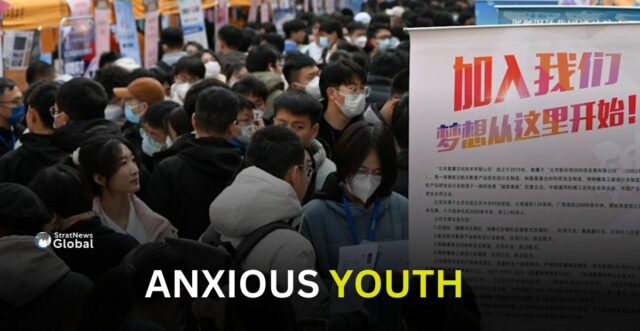A quiet shift is taking place among China’s younger generation. Once hailed as the most entrepreneurial, many young Chinese are now turning away from high-risk ventures in favor of stable government jobs and predictable incomes.
Today, many young job-seeking graduates are increasingly moving toward civil service exams, state-owned firms, and teaching roles instead of launching businesses.
“The charm for public jobs in particular is high because they offer stability, benefits and prestige, particularly for the urban youth, with high educational attainments or with CCP affiliations,” said Dr. Sriparna Pathak, Professor of China Studies at OP Jindal Global University.
The young are opting out of elite universities altogether, shifting to vocational courses which can provide them job stability even if less prestigious.
“There will be repercussions for the ‘Made in China 2025’ strategy, which relies on fostering independent innovators,” argued Dr. Pathak.
While the national urban jobless rate stood at 5% in May, which is within the government’s target, the youth unemployment rate (ages 16–24, excluding enrolled students) was nearly three times higher at 14.9%.
Adding to this, entry-level salaries have dropped, and the rent-to-income ratio remains deeply disrupted, forcing many young people to live in cramped “matchbox” apartments just to save money.
This shift reflects a broader economic recalibration. China’s tech crackdown, shrinking private sector opportunities, and the aftershocks of its strict zero-COVID policies have left a generation of youth skeptical about traditional success narratives.
Trends like “lying flat” and “letting it rot” aren’t just internet slang, they’re expressions of real disillusionment with a system that no longer guarantees progress.
For China’s youth, it’s no longer just about chasing dreams. It’s about managing risk in a world where the promise of prosperity feels increasingly out of reach.





